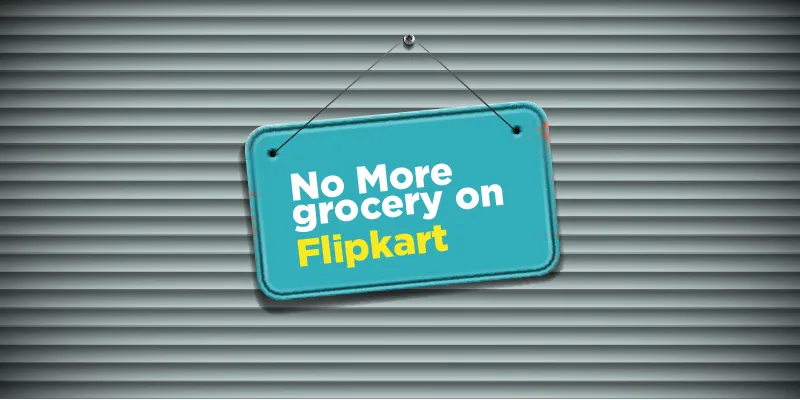Does Flipkart shutting down 'Nearby' spell trouble in the online grocery sector?

Flipkart has shut down grocery service, ‘Nearby’, an experiment that the e-commerce giant ran from October 2015 in Bengaluru. The move comes a few weeks after online grocery players Grofers and Peppertap shut down their service in nine and 10 cities respectively.
Flipkart was following the footsteps of fellow e-commerce players Amazon, which had started its pilot in March 2015, and Snapdeal, which went into partnership with Godrej Nature’s Basket in April 2015.
In an official statement, Flipkart said: “'Flipkart Nearby' was a piloted in select areas of Bengaluru. The experiment was a test for understanding efficiencies and operations of the hyperlocal business. The project has now run its course and the learnings from this pilot will now be used for future operations of the company.”
The shutdown follows major changes in the top leadership in the company. Co-founders Sachin Bansal, who was CEO, and Binny Bansal, who was COO, became Executive Chairman and Chief Executive Officer respectively in January. Soon after, Head of Commerce of Flipkart and Co-founder of Myntra Mukesh Bansal, and Chief Business Officer Ankit Nagori left to start their own ventures.
While hyperlocal players have not had much luck in tier II cities, the inventory model seemed to have worked for the biggest player in the market – Big Basket. Hari Menon, Co-founder, Big Basket, says, “It’s a tight business. In hyperlocal model, margins have to be shared with the kirana stores. You don’t know the inventory in the store they are picking up the items from. It is critical for customers to get all the items ordered, and with good quality.”
Competition still on
The one player that would have got a kick out of the shutdown of Nearby would be Amazon. Flipkart’s biggest competitor has grocery delivery service in the US – named Amazon Fresh. After a pilot that had lasted for months, Amazon launched a full-fledged grocery service Amazon Now in India earlier this month under hyperlocal model, and is expected to invest more in the sector.
Amazon, according to a person with direct knowledge of its operations in India, is treading carefully in the country. It believes that delivering groceries by signing on kirana stores and using in-house logistics arm to deliver on the kiranas' behalf is not a valuable model. It works on thin margins. A person, who spoke on the condition of anonymity, said, “We have to become a technology interface. It is better to let them have control over their catchment and delivery. Our role is only to make the order process easy and increase additional orders because of technology. But here we have to make sure that they provide quality in delivery and follow some processes.”
But Flipkart may not be done with the online grocery sector. The food and grocery market is currently valued at a whopping $383 billion, and is expected to touch $1 trillion by 2020, according to a study by advisory firm Technopak. Saurabh Kumar, Co-founder, Grofers, believes that with more resources and people to build on it Flipkart will definitely come back. “Flipkart did not have the bandwidth to launch it properly. But this is too big a market for them to not make a serious play,” he said.
Flipkart has, in the past, been ruthless in shutting business experiments that did not work out. Its payment gateway PayZippy, which was launched in July 2013, shut down in August 2014. Flipkart also stopped its sale of e-books in December 2015.
With more players coming in, evolution of different strategies is essential for survival in any market. Amazon is planning to scale up its grocery operations this year – and if that happens, it could lead to 'OnlineGrocery 2.0' in India.
(with inputs from Vishal Krishna)







